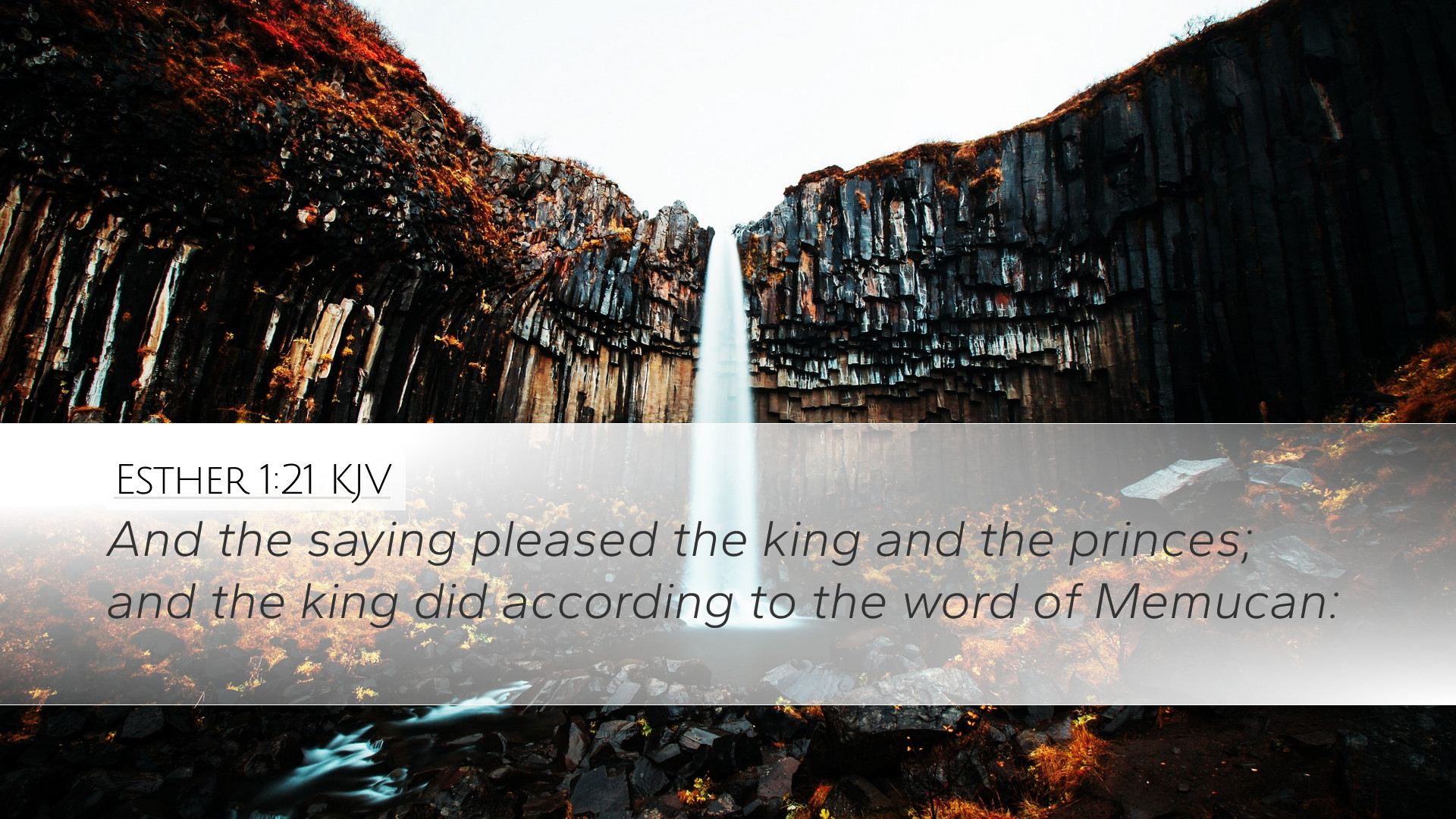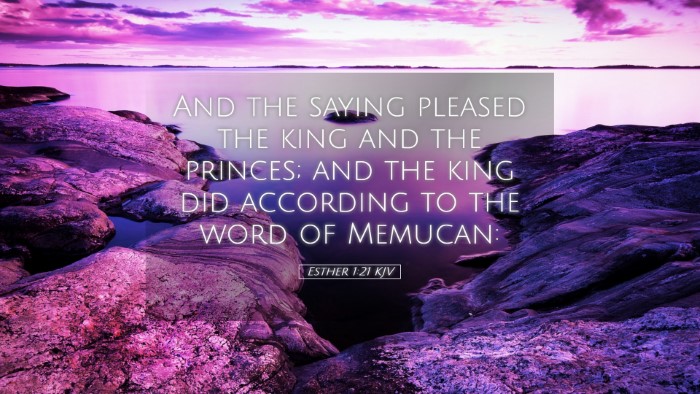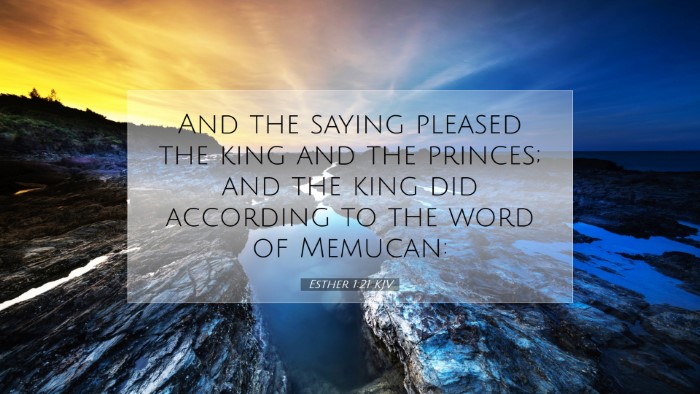Old Testament
Genesis Exodus Leviticus Numbers Deuteronomy Joshua Judges Ruth 1 Samuel 2 Samuel 1 Kings 2 Kings 1 Chronicles 2 Chronicles Ezra Nehemiah Esther Job Psalms Proverbs Ecclesiastes Song of Solomon Isaiah Jeremiah Lamentations Ezekiel Daniel Hosea Joel Amos Obadiah Jonah Micah Nahum Habakkuk Zephaniah Haggai Zechariah MalachiEsther 1:21
Esther 1:21 KJV
And the saying pleased the king and the princes; and the king did according to the word of Memucan:
Esther 1:21 Bible Commentary
Commentary on Esther 1:21
Esther 1:21 states: "And the saying pleased the king and the princes; and the king did according to the word of Memucan." This verse concludes the assembly of advisors discussing Queen Vashti's refusal to obey King Ahasuerus's command. The responses suggest a range of theological and practical implications that yield significant insights for pastors, students, and scholars alike.
Contextual Background
At the beginning of the Book of Esther, we find the Persian king Ahasuerus (Xerxes) hosting a lavish banquet, a statement about his power and wealth. Vashti's defiance sets into motion the events leading to Esther's rise. Understanding the cultural and political machinations of this period is vital for interpreting the verse accurately.
The King's Approval
This verse highlights the approval of the king regarding the advice he received from Memucan, one of his princes. Both the royal authority vested in Ahasuerus and the counsel of his advisors are pivotal themes throughout Esther.
The Authority of Counsel
Matthew Henry emphasizes the importance of godly wisdom and counsel in governance. He notes that the King’s enjoyment of Memucan’s response reflects a king susceptible to flattery rather than seeking true wisdom. The power of advisers can sway leaders, which is pertinent for pastors in their leadership roles.
A Pleasing Response
Henry posits that the choice to please others can be perilous. Ahasuerus's desire for affirmation from his court may reveal a weakness that several leaders exhibit, where their actions are swayed more by the opinions of men than by righteousness or morality.
Social Implications
Memucan's proclamation suggests significant social ramifications within the kingdom. The suggested punishment for Vashti serves to reinforce patriarchal norms and thus could be interpreted as a warning against disobedience and a reinforcement of social order.
Commentary by Albert Barnes
Albert Barnes highlights the implications of the king's reliance on counsel instead of showcasing independent thought as a ruler. The appeal to the king's authority demonstrates how the cultural ethos required female submissiveness, affecting not only Vashti but future generations. Barnes's analysis underscores how societal expectations can dictate morality and behavior in leadership.
The Importance of Leadership Decisions
The decision Ahasuerus makes here is critical. It suggests that decisions made by leaders in response to public opinion can drastically alter the course of events. This is a timeless principle for those in leadership, reminding them of the significance and potential consequences of their decisions.
Theological Insights
From a theological perspective, the response of the king can also represent human authority's fragility in contrast with divine sovereignty. Ahasuerus’s inability to maintain control over his wife reflects the insufficient power of earthly rulers.
Adam Clarke's Reflection
Adam Clarke reflects on the nature of God's providence throughout these decisions. While human choices unfold in what seems to be a chaotic manner, they serve the purpose of God’s ultimate plan for Israel. God's hand is subtly guiding these events even when His presence is not overtly trumpeted in the text.
Understanding Divine Providence
Clarke advises readers to look beyond the human narrative to see divine orchestration at play. This perspective urges scholars and pastors to know that behind worldly decisions, God’s ultimate plan unfolds, providing comfort in times of political turmoil.
Conclusion
The verse, Esther 1:21, serves as a microcosm of the broader themes of power, authority, gender, and divine providence throughout the Book of Esther. The interplay between human decisions and divine guidance reveals the complexity of God's involvement in the affairs of humanity. As we reflect on this verse, especially as leaders, we are reminded to seek wisdom, act with integrity, and recognize that our actions have far-reaching consequences.
This commentary provides essential insights that can benefit pastors, students, theologians, and Bible scholars as they engage with issues of leadership, societal norms, and God's unwavering sovereignty in humanity's affairs.


